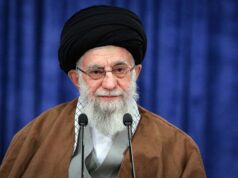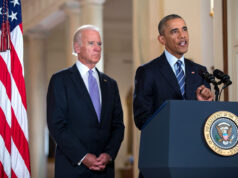Eighty-five Americans, Israeli and Canadian victims of Hezbollah rocket attacks during the terrorist group’s 2006 war with Israel filed an unprecedented lawsuit against the Central Bank of Iran, Bank Saderat Iran of Tehran, and Bank Saderat of London. The suit, filed in Washington, DC, seeks $1 billion in compensatory damages and an unspecified amount in punitive damages. To view a copy of the complaint, click here.
The suit charges that Hezbollah used funding relayed by the Iranian banks to prepare for the 2006 war against Israel, which lasted from July 12 through August 14. During that time, Hezbollah fired around 4,500 rockets into Israel, mostly targeting civilian areas. According to the plaintiffs, banks controlled by the Iranian government “provided Hizbullah with over $50 million in financial support in the years prior to the attacks with the specific intent of facilitating Hizbullah terrorist attacks against American and Israeli targets.”
The plaintiffs’ claims are based on the U.S. Treasury Department’s 2007 designation of Bank Saderat as a terrorism supporter. According to the Treasury, the Iranian government used Bank Saderat to channel funds to Hezbollah, Hamas, Palestinian Islamic Jihad, and other terrorist organizations. As the report states, “from 2001 to 2006, Bank Saderat transferred $50 million from the Central Bank of Iran through its subsidiary in London to its branch in Beirut for the benefit of Hizballah fronts in Lebanon that support acts of violence.” In addition, the report notes that “Hizballah has used Bank Saderat to send money to other terrorist organizations, including millions of dollars on occasion, to support the activities of Hamas.”
While the outcome of the lawsuit is unknown, the suit itself is significant, as it further publicizes Iran’s direct links to terrorism. Indeed, as U.S. Treasury Undersecretary for Terrorism and Financial Intelligence Stuart Levey said in an interview with inFOCUS, the Treasury’s designations are effective not because they freeze assets, but because they publicize Iran’s support of terrorism. And, as a result, “Banks around the world do not want to do business with these entities… because banks around the world tend to be run by people who are very responsible corporate citizens who don’t want to do business with terrorists, who don’t want to do business with money launders, and who don’t want to do business with proliferators.”





